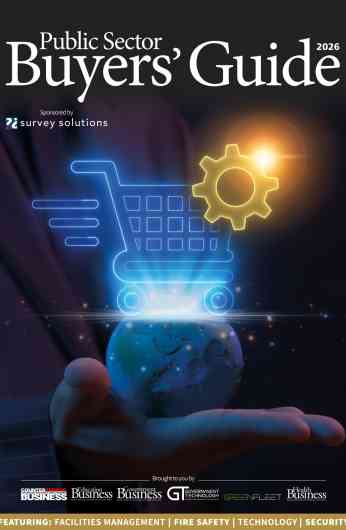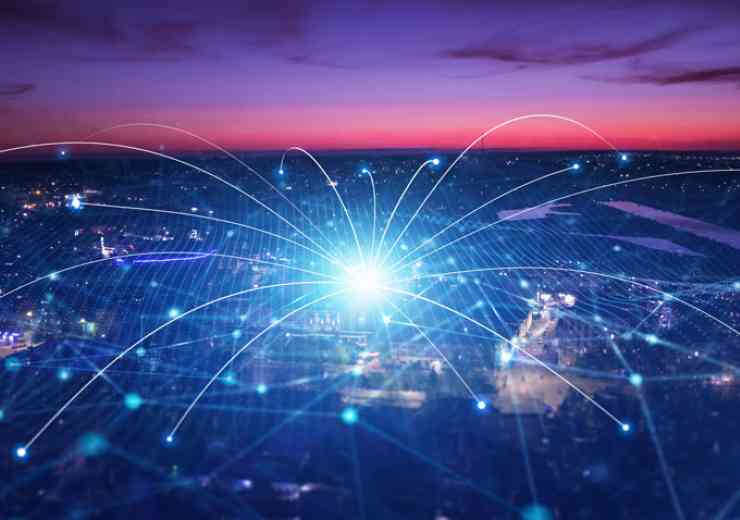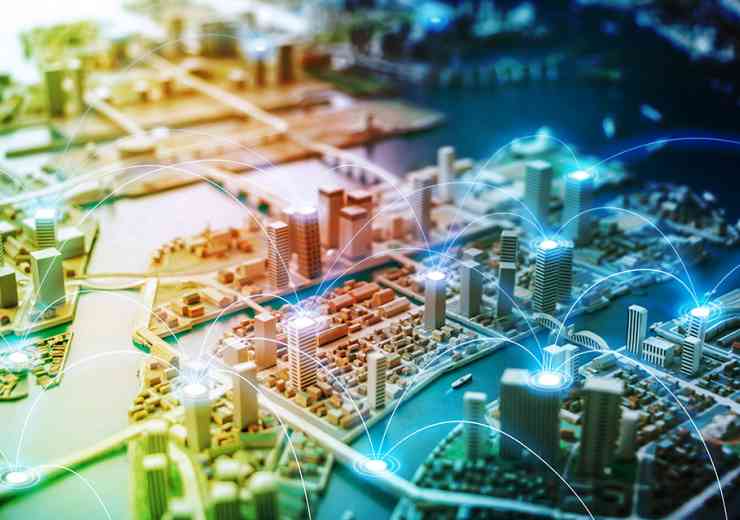Keeping the UK running
 In the event of a potential attack, the ability to effectively secure a wide range of infrastructures is of the utmost importance to government agencies, the police and security managers. This is especially true for the utilities sector, which is responsible for the critical elements of our everyday life including the water and electricity supply, gas and oil. The growing scope and impact of this sector in almost everything we do has greatly increased its vulnerability to threats such as terrorism and vandalism; therefore, utilities companies must adopt security solutions with longevity.
In the event of a potential attack, the ability to effectively secure a wide range of infrastructures is of the utmost importance to government agencies, the police and security managers. This is especially true for the utilities sector, which is responsible for the critical elements of our everyday life including the water and electricity supply, gas and oil. The growing scope and impact of this sector in almost everything we do has greatly increased its vulnerability to threats such as terrorism and vandalism; therefore, utilities companies must adopt security solutions with longevity.
Recently, Channel 4 aired a faux-documentary entitled Blackout; a dystopian drama that envisioned what would happen if the UK suffered a massive power failure following a suspected cyber-attack on the national grid. As expected, the narrative depicted a state of disarray, with citizens feeling completely unsafe in a hostile new world. While this was a fictional TV feature, the threat of such an attack is still very real.
Cybersecurity
Cybersecurity has become a much bigger priority in recent years, with the threat of an attack encompassing everything from online shopping, e-mail, banking and e-commerce to mobile phones, social networks and online gaming. Alongside these daily ‘essentials’, it also includes our national infrastructure, identity fraud and global terrorism; and if terrorists were able to gain control of our national infrastructure, such as the power grid, there could be harrowing results.
It could be considered that the first step in reducing this risk is recognising that it exists. In the past, companies have been urged by the Centre Protection for National Infrastructure to consider security, and as a result, analogue security systems were soon replaced by new firewalled IP networks, local control rooms were hardened and CCTV monitored, vulnerable points were risk assessed and critical networks were isolated from unsecured corporate data via private networks (VPN). The idea of a power plant being disabled or taken over by cybercriminals is a very real threat, whether it be by organised groups or even individuals bored with creating simple email viruses and looking for a new challenge to overcome.
As such, it is essential that businesses continue to invest and secure these crucial industrial networks by adding a robust layer of security. While this type of security exists at a cyber-level, there are also some physical measures that can be implemented as well.
Access Control
As well as cybercrime, utility companies are exposed to a number of risks including natural disaster, theft and internal crime. The utilities sector is characterised by its large number of remote locations, as well as its multi‑site offices and production facilities which are used by a variety of people every day.
These remote locations offer practical challenges in themselves. For one, these premises need to be secure yet accessible around the clock. With maintenance visits being irregular and often conducted by different staff, keys are constantly changing hands, subsequently increasing the security risks and potentially resulting in theft, vandalism or acts of terrorism. Reliable and professional companies will understand the requirement for robust solutions, with security systems offering physical security as well as flexibility in terms of access control.
Balance the need for high security
Security solutions should offer temporary access to mobile employees whilst balancing the need for high security, the ability to withstand attack and cope with potentially corrosive conditions due to extreme weather. Access control systems can offer a wide range of benefits and provide the ability to control, monitor and restrict the movement of people, assets or vehicles, in, out and around a building or site.
Mike Sussman, Chairman of the BSIA’s Access Control Section, comments: “Having access control technology in place will not only deter criminals, but can physically prevent them from entering the site, whilst offering a versatile and cost-effective way to regulate entry to premises.”
Access control readers can also offer temporary PIN access via SMS or card-based access, assigning user rights via GSM systems, helping to ensure the utilities sector’s need for flexible and secure solutions.
These systems can be useful at both remote locations and at administration and production facilities which also require high security and management of access, as disruptions in operations as a result of security breaches can have devastating effects on our infrastructures.
Where it has helped
The Norec Limited Liverpool Bulk Terminal dock at Bootle is a coal importing facility which supplies the various power stations of energy giant E.ON. Norec stores and distributes coal via road and rail, and runs and performs maintenance on the Merseyside site on behalf of E.ON.
The Terminal was looking for a reliable smart card attendance and security regime due to occasional threats from people such as protestors. “People are visiting us all week and we needed a secure access and time and attendance system that would match our special requirements,” explained Jimmy Finch, Deputy Supervisor and Engineering Planner.
A BSIA member provided this solution in the form of an access control system which incorporated time and attendance software and a fire roll call monitoring facility where the dock’s employees use contactless smart cards to clock in and out, or to book jobs and absences.
The system also triggered the opening and closing of the site’s security gate, with the control of the safety gate being automatic. “Now no-one can get on-site without using a card to go through the gates, so the system works very well as far as security is concerned,” commented Jimmy.
The benefits of integration
Access control systems can also be usefully integrated with other security measures, such as CCTV technology, for an even more comprehensive security plan. One major benefit of this type of integration is pre and post-even video recordings which are initiated by the access control system. Video recordings can be linked with event information, which makes searching for a particular event on the recording much more efficient. For example, if an intruder has entered a premises and attempted to breach an access controlled area by forcing a door, operators can search for ‘Door forced – control room 4’ allowing them to easily take a look at images of the intruder and respond accordingly.
This kind of integration can also be beneficial in terms of human resource management. CCTV can be combined with Time and Attendance systems in order to detect the occurrence of ‘buddy‑clocking’ – when employees clock each other on and off work – thus making sure that everyone is working their appropriate hours and no one is treated unfairly.
Securing the Perimeter
Whilst carrying out security measures within a premises is extremely beneficial, implementing new systems on the outside can be equally as crucial. It is often said that the perimeter is one of the most essential places to be secured; the sooner a threat can be detected, the more time and space personnel have in order to respond. An increased response time means a greater possibility of a safe resolution to security breaches, giving the operating body the time to gather adequate force and countermeasures to deal with the danger. In the event of violent attacks, extra seconds could save lives, and any delay or forewarning of such an attack is critical in preventing it.
Such measures can include physical obstructions such as security fencing, gates and wire obstacles, which are useful in deterring any would-be threat. The overt presence of such measures may stop an act of criminality or terrorism at the outset, presenting an image of impregnability that might dissuade those seeking unauthorised access.
Covert security
The unfortunate downside to overt perimeter security measures is, however, that they are by nature easily detected, and thus can be avoided or compromised by individuals with time, skill and preparation. Thus, an alternative measure is to use covert systems that are less obvious to the observer, and consequently less likely to be bypassed by a criminal element. Particularly effective forms of covert security include heat and motion sensors that are hidden and connected to alarm systems. Known as Unattended Ground Systems (UGS), when activated they enable an early warning system, giving personnel time to respond effectively.
Choosing quality
When it comes to protecting our national infrastructure, no corners can be cut, particularly when choosing a quality supplier. It is absolutely crucial that your security provider meets with the essential British and European Standards for their product and service; members of the BSIA are all inspected to high quality standards and can offer a reputable service.
Further information
www.bsia.co.uk


















